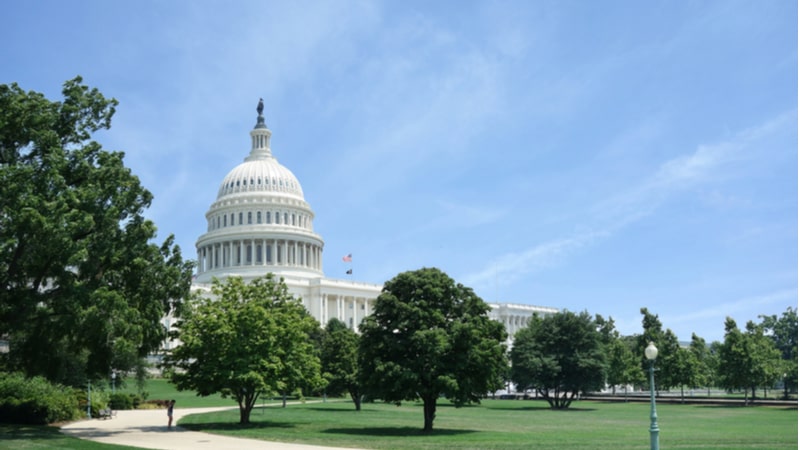
The House of Representatives is expected to hold votes on its fiscal year (FY) 2022 reconciliation package – known as the Build Back Better Act (BBB) – as well as the Infrastructure Investment and Jobs Act – or the Bipartisan Infrastructure Framework (BIF) – today after the House Rules Committee finalized a rule for debate on the now $1.75 trillion “soft” infrastructure legislation late on Nov. 4.
That marked the third and final time the Rules Committee met on the topic, taking a second pass on Nov. 3. None of the meetings garnered any substantive changes to the tech provisions of the BBB, such as a $5 billion investment in supply chain resilience and $4.75 billion to modernize the Internal Revenue Service’s business systems.
Ahead of the Nov. 3 Rules Committee meeting, Speaker of the House Nancy Pelosi, D-Calif., released a second Dear Colleague letter on the topic, reiterating her support for the legislation and the need to keep the legislation moving towards eventual consideration and passage.
The version of the BBB considered Nov. 3 includes provisions for paid family and medical leave, even though they had been previously stripped from the legislation.
“It had been my intention throughout this process to put on the House Floor and pass a bill that would pass the Senate in the same form,” Pelosi wrote. “Because I have been informed by a Senator of opposition to a few of the priorities contained in our bill and because we must have legislation agreed to by the House and the Senate in the final version of the Build Back Better Act that we will send to the President’s desk, we must strive to find common ground in the legislation.”
The vote on the reconciliation bill will take a while, as the House will need to complete a “vote-a-rama” process for any submitted amendments. Once that is complete, the BIF will be ready for a floor vote, after all debate on the bill has already been completed.
Combined, the two bills account for billions of tech spending on IT modernization, broadband, cyber, and supply chain resiliency, among other tech priorities in both bills.
The Infrastructure Investment and Jobs Act has already passed the Senate, so, should it pass the House in the same form, with the final stop being President Biden’s desk.
Schumer Reiterates Senate Timeline, White House Pressing for Passage
While the House has begun considering the reconciliation bill, Senate Majority Leader Chuck Schumer, D-N.Y., said that the Senate’s goal is to pass the BBB legislation by Thanksgiving.
“Democrats are closer than we’ve ever been to finalizing and passing legislation to achieve President Biden’s Build Back Better agenda,” Schumer said from the Senate floor Nov. 4. “So as the House prepares to move forward, the Senate continues to achieve progress in our goal of passing Build Back Better before Thanksgiving. That’s our goal.”
The White House, meanwhile, is pushing for the House to swiftly pass the reconciliation package and urges broad passage and emphasized that it is reportedly fully paid for and should reduce the deficit, rather than increase it.
“The Administration strongly supports House passage of H.R. 5376, the Build Back Better Act, which will make historic investments in children and families, grow the economy, create millions of good-paying American jobs, enable more Americans to join and remain in the workforce, expand access to health care, set the United States on course to meet its climate goals, reduce costs for families, and strengthen the middle class,” the White House said in a statement Nov. 3.
“The Administration urges Congress to pass the Build Back Better Act. We look forward to working with Congress throughout the legislative process and ensuring that we answer the demands of the American people at this critical moment in history,” the White House said.
